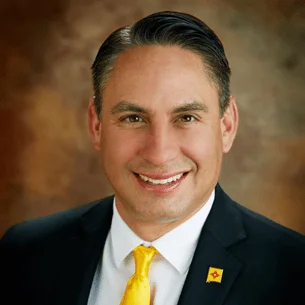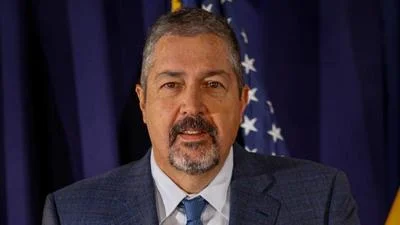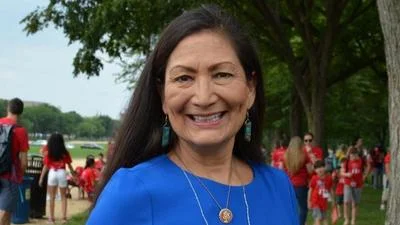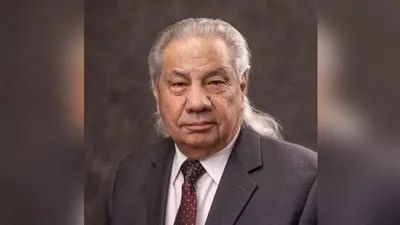The New Mexico Legislature began its first special session of 2025 with a focus on swift action, foregoing traditional ceremonies to address pressing legislative matters. Lawmakers in both the House and Senate quickly introduced bills and convened committee meetings, following an agenda set by Governor Michelle Lujan Grisham’s recent proclamation.
Before starting official business, legislators from both parties issued a unified statement condemning political violence. This response came after the killings of political activist Charlie Kirk and U.S. Congresswoman Melissa Hortman. Legislators emphasized that “violence has no place in our democracy, regardless of political affiliation.”
Governor Lujan Grisham’s proclamation expanded the session’s scope beyond initial expectations, adding items such as confirming regents for Western New Mexico University, amending mental competency laws for metropolitan courts, funding behavioral health support in legal proceedings, transferring emergency contingency funds, and appropriating money for the Regulation and Licensing Department. Other topics included grant funding for rural hospitals, changes to Affordable Care Act eligibility standards and Medicaid support, food assistance funding, vaccine delivery authority for the Department of Health, and public broadcasting appropriations.
Medicaid support featured prominently in legislative discussions due to New Mexico’s high poverty rate and large rural population. The state has the highest per capita Medicaid enrollment nationwide. Since joining Medicaid Expansion in 2014, New Mexico has relied heavily on federal reimbursements—receiving 90% coverage for expansion costs and 72% overall reimbursement rates. Even minor reductions in federal contributions can lead to significant financial losses for the state.
Rural hospitals are particularly vulnerable to these reductions because they depend on Medicaid reimbursements to remain operational. Estimates suggest that up to 15 out of 28 rural hospitals could close without additional state funding relief. In 2024, hospitals reported $7.5 billion in net patient revenue with $1.6 billion from Medicaid; six rural hospitals recorded a combined loss of nearly $88 million.
Recent federal legislation does not reduce reimbursement rates but introduces new requirements: able-bodied adults must work or participate in approved activities at least 80 hours per month; states must recertify eligibility every six months; co-pays may be imposed on recipients above the poverty line; and limits are placed on provider taxes used by states to raise their share of Medicaid costs through programs like New Mexico’s Health Care Delivery and Access Assessment Act.
To offset potential losses for rural hospitals nationwide, Congress established a $50 billion Rural Health Transformation Program offering grants to affected states. It remains unclear whether this amount will suffice or if New Mexico will qualify given its demographic profile.
In Senate proceedings today:
- SB1 (Rural Health Care Grants) passed unanimously.
- SB2 (Criminal Competency Metropolitan Court) also passed.
- SB3 (Vaccination Authority) was approved with some opposition.
The Rural Health Care Bill aims to provide stabilization grants to providers at risk of closure or service reduction and broadens definitions so more communities qualify for aid. Senate Finance Committee Chairman George Muñoz stated: “We have to get ahead of the challenges faced by our rural hospitals... This bill is a start to avoid the collapse of both rural health care and our urban health care in New Mexico.” Senator Pat Woods added: “This bill will make it possible for many hospitals to keep their doors open now.”
Terri Cole, president and CEO of the Greater Albuquerque Chamber of Commerce, testified: “Good afternoon, Mr. Chair and members of the committee. I’m Terri Cole, president and CEO for the Greater Albuquerque Chamber of Commerce. We are delighted to see this bill because it focuses on our rural communities, which is extremely important to our economic development efforts as a state. We’re also pleased that the bill focuses on health care access. You know, I’ve been president and CEO of the Chamber now for four decades. Never have I seen health care delivery become the economic development issues it is today. The more we can do to correct that, both for the health care deliver and four our rural communities, the better. We commend the sponsors on the bill and urge your support. Thank you so much.”
Senate Republicans introduced six additional bills related to child welfare definitions, CYFD commission qualifications, drug use as child abuse criteria, youthful offender definitions, medical malpractice reforms, and licensure compacts—all referred to Committee’s Committee chaired by Senate President Pro Tempore Mimi Stewart.
In House activity:
- HB1 (the main appropriation bill) passed after three hours’ debate.
- HB2 (advanced premium tax credit bill) was supported by J.D. Bullington representing the Greater Albuquerque Chamber of Commerce who said: “I’m here today speaking on behalf of the Greater Albuquerque Chamber of Commerce... The Chamber is supporting several bills... Components that are important to the Greater Albuquerque Chamber [include] funding for the health care delivery fund.” He highlighted concerns about healthcare access statewide as well as behavioral health provisions.
With key bills moving rapidly through both chambers—particularly those addressing healthcare funding—the Legislature anticipates further action tomorrow as lawmakers continue working under tight deadlines.









